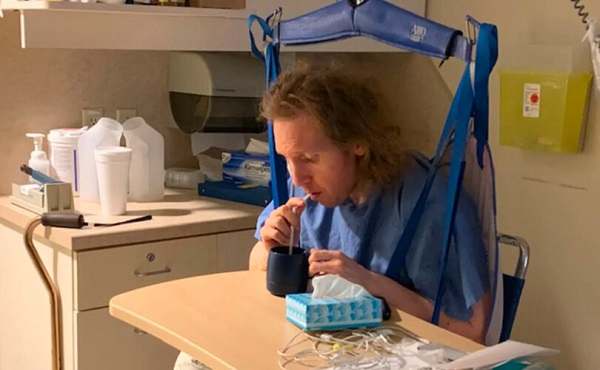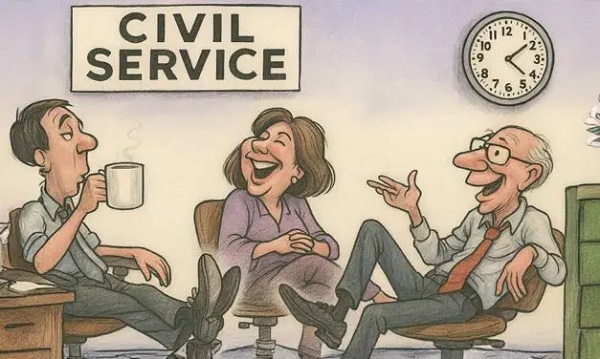Health
Oxford study finds transgender surgery increases depression, suicide ideation rates

From LifeSiteNews
This study, along with scores of others conducted in recent years, explodes the media-enforced narrative that so-called ‘gender transition’ procedures are beneficial for the gender-confused.
A study published in the Oxford Journal of Sexual Medicine found that undergoing so-called “sex change” surgery, far from reducing depression rates among the gender dysphoric, substantially increased rates not only of depression, but of anxiety, suicidal ideation, and substance use disorders.
Males who underwent transgender surgery had a depression rate of 25.4 percent, compared to 11.5 percent in those who did not have surgery. Likewise, females who underwent surgery had a depression rate of 22.9 percent, compared to 14.6 percent in those who did not.
The study notes that males undergoing “feminizing” surgeries demonstrated a particularly high risk for depression and substance use disorders.
“From 107,583 patients, matched cohorts demonstrated that those undergoing surgery were at significantly higher risk for depression, anxiety, suicidal ideation, and substance use disorders than those without surgery,” the researchers found.
Rather than concluding that so-called “gender affirming” surgery is a dangerous, unnecessary practice that should be discontinued because it puts patients’ lives at risk, the researchers instead suggest that that their findings show a need for “gender-sensitive mental health support following gender-affirming surgery to address post-surgical psychological risks.”
Exploding the myth
This study, along with scores of others conducted in recent years, explodes the media-enforced narrative that so-called “gender transition” procedures are beneficial or even “necessary” for the happiness and well-being of the gender-confused.
A significant body of evidence now shows that “affirming” gender confusion carries serious harms, especially when done with impressionable children who lack the mental development, emotional maturity, and life experience to consider the long-term ramifications of the decisions being pushed on them or full knowledge about the long-term effects of life-altering, physically transformative, and often irreversible surgical and chemical procedures.
Studies find that more than 80 percent of children suffering gender dysphoria outgrow it on their own by late adolescence and that “transition” procedures fail to resolve gender-confused individuals’ heightened tendency to engage in self-harm and suicide – and even exacerbate it, including by reinforcing their confusion and neglecting the actual root causes of their mental strife.
Many oft-ignored detransitioners attest to the physical and mental harm of reinforcing gender confusion as well as to the bias and negligence of the medical establishment on the subject, many of whom take an activist approach to their profession and begin cases with a predetermined conclusion in favor of “transitioning.”
Last year, a massive, peer-reviewed study provided unequivocal evidence that those who undergo so-called “gender reassignment” surgery put themselves at a vastly increased risk of suicide – an astounding 12 times that of the general population.
The giant study, “involving 56 United States healthcare organizations and over 90 million patients,” analyzed data collected over a 20-year period, from February 2003 to February 2023, examining “suicide attempts, death, self-harm, and post-traumatic stress disorder (PTSD) within five years of the index event.”
The researchers compared the experiences of persons aged 18-60 who visited hospital emergency rooms and who had previously undergone “transition” surgery with those who visited emergency rooms without having undergone transgender surgery: A stunning 3.47 percent of those who had surgically “transitioned” were treated for suicide attempts, versus 0.29 percent for non-“transitioned” patients.
The authors of the study, like those of the one just published in the Oxford Journal of Sexual Medicine, sidestepped the obvious conclusion that attempts to surgically “transition” the gender-confused are both dangerous and futile.
Instead they concluded: “Gender-affirming [sic] surgery is significantly associated with elevated suicide attempt risks, underlining the necessity for comprehensive post-procedure psychiatric support.”
In 2016, The New Atlantis, A Journal of Technology and Society, produced a landmark report offering a summary and an up-to-date explanation of research on “sexual orientation and gender identity” from the biological, psychological, and social sciences, covering nearly 200 peer-reviewed studies.
“The hypothesis that gender identity is an innate, fixed property of human beings that is independent of biological sex — that a person might be ‘a man trapped in a woman’s body’ or ‘a woman trapped in a man’s body’ — is not supported by scientific evidence,” according to experts Lawrence S. Mayer, M.B., M.S., Ph.D, scholar-in-residence in the Department of Psychiatry at the Johns Hopkins University, and Paul R. McHugh, M.D., professor of psychiatry and behavioral sciences at the Johns Hopkins University School of Medicine.
According to their report, the vast body of scientific evidence tells a different story from the one most have been told through mainstream media. “Sexual identity” or “sexual orientation” are so commonly used that they go unquestioned and are perceived to have been derived from biological or medical science, but they are not. These terms are merely expressions of desire, behavior, and identity, all of which are fluid and may change over time. Additionally, “gay,” “lesbian,” and “transgender” are not scientific terms. People who suffer from homosexual inclinations and/or gender confusion are not separate species of human beings.
The only thing that science actually tells us is that we are born either male or female.
One young man, Yarden Silveira, was so distraught after “sex change” surgery that he committed suicide in 2021.
Before taking his own life, Yarden wrote:
I wish I never listened to the medical and psychiatric community when they told me it was possible to change my sex. What a lie. Very dangerous and unethical. Sex reassignment [sic] surgery is a hit and miss type of surgery, but they don’t tell you that. They never do. And maybe if I didn’t have autism, maybe if my brain wasn’t so defective, I would have caught on before it was too late…
This is what I get for messing with nature… I just wanted friendship and love. I wanted life to be easier. I wanted to be a woman since I was 15. I wish I had the knowledge that I have today. I was a confused kid with no identity. I wish I could have done everything different, but it’s too late now. I’m royally screwed…
The Transgender Ideology and its lies, along with the pro-gay media, medical and psychiatric community, have killed me. The feminization of America will continue to produce outcomes like mine. It wasn’t my fault for failing. Everyone failed me, my death shouldn’t surprise anyone.
Agriculture
“We Made it”: Healthy Ostriches Still Alive in Canada

Looks like we made it. For another weekend at least. Until sanity settles down into the head into the head of the federal government that remains fixated on the killing of 399 healthy ostriches. As the clock wound down today, an announcement from the farm proclaimed, “We made it today,” calling it another “miracle Friday.”
WATCH TODAY’S Miracle Friday Announcement
Earlier in the day, Rebel News’ Drea Humphrey reported, “There’s apparently a SWAT team up the road, I hope that doesn’t mean they’ve gotten bad news,” wondering “if the police were preparing to aid the CFIA in the cull.”
Dacey Media reported that the farm said that “Ostrich Hunters” were also spotted at Universal Ostrich Farms according to Katie Pasitney The “kill pen” is fully set up and CFIA have been luring ostriches into it.
But as of 5:30 ET, it seems the farm and the ostriches may have escaped to live another day as the Supreme Court of Canada (SCC) did not hand down a decision to grant a further leave to the farm to prepare its case, or dismiss the case, allowing the Canadian Food Inspection Agency (CFIA) to proceed with their “cull” to kill 399 healthy ostriches.
The palpable, raw government over-reach that includes over 100 Royal Canadian Mounted Police (RCMP) that have occupied the farm highlights the mismanagement of the CFIA and may be one of the reasons that the SCC has hesitated in making a decision before the weekend.
Call to Dismantle the CFIA
On today’s Stand on Guard interview Katie Pastiney, spokeswoman for the Universal Ostrich Farms in British Columbia called for the dismantlement of the Canadian Food Inspection Agency. She says that the CFIA:
“Needs to be dismantled and we need to rebuild this organization back up from the ground up and we need to have a new vision.
“We need to have a new mission and a brand-new face for Canadians that will give us hope that we will be protected not attacked.”
“The Canadian Food Inspection Agency continues to overuse their authority, overuse their excessive freedom that they’ve been given, and they have zero accountability for their actions.”
The farm has been embroiled in a dispute with the federal government and its CFIA agency for close to a year. The agency claims the flock of ostriches has the avian flu, but it refuses to test the farmers’ birds, even though they have been healthy for 258 days. At the same time the CFIA will not let the farmers pay for the tests themselves, saying they will charge them $250,000 per ostrich and put them in jail for 6 months.
The federal agency and the RCMP have seized and occupied the farm since September 22, 2025. they have conducted a campaign of harassment of the farm family and their flock of ostriches that included: arresting the farmers when they were told to go feed their birds; using lights and heavy equipment at night’; sending drones to chase the birds that resulted in pushing one bird over the fence so it hurt its leg, not treating the animals properly; and not feeding the ostriches full rations of food and water and not treating the birds the CFIA injured. These activities have continued as the CFIA continues to construct a “kill box” of hay bales that have been on fire four times while under the CFIA’s supervision and occupation.
Running Out of Time
In a stunning report on X October 2nd, however, before the Supreme Court of Canada had made decision, the CFIA has daily continued to move forward to kill the ostriches ignoring the SCC legal “stay.”
Karen Esperson, Pasitney’s mother yesterday reported on X:
“We need to put CFIA in check.
“This organization feels they are greater than the Supreme Court of Canada. they are still positioning the birds and putting them in the position to be killed immediately. They are assuming they know the outcome of the Supreme Court oof Canada. Do they think they are better than the Supreme court? That they are going to for sure win?
“The Supreme Court has not decided.
“What is happening?
“We are on a stay order and yet I just got a call that they have a whole bunch of birds herded in a little circle in the kill pen.
“Waiting. This is animal cruelty.”
Efforts to Save the Ostriches
More and more Members of Parliament have been speaking up on behalf of the farmers including the local provincial representative, the local Member of Parliament Scott Anderson, who visited the farm trying to talk to the CFIA and also the Official Leader of the Opposition Pierre Poilievre spek out yesterday.
A second press conference hosted by John Catsimatidis, a New York radio host, billionaire and friend of Donald Trump and Dr. Oz, was also held yesterday. The USA Trump administration representatives including Robert F. Kennedy say they want to either pay for the ostrich testing or help re-locate them to the United States for further research opportunities. This outreach has been ignored.
CFIA Has Staff Enough to Kill but NOT Enough Staff to Test?
In my interview today with Pastiney she explained how the CFIA did originally give their ostrich farm an exemption that was later rescinded because the CFIA told them they were “understaffed and we’re not able to perform these tests.”
“There was an exemption package that was given to us on January 2nd. We have an email from Canadian Food Inspection Agency stating that we qualify for special rare genetics within our herd and that we could be exempt.
“Now when we followed through with that because we needed to test them just to show their DNA and their genetics and show their lineage that between January 2nd and January 10th something happened.
“Now we didn’t qualify we lost that right.
“And on January 10th they said sorry you don’t qualify for special rare genetics because we are understaffed and we’re not able to perform these tests.”
Why does the CFIA have staff to occupy the farm for weeks and to kill 399 ostriches as well as requisition the Royal Canadian Mounted Police (RCMP) over 40 cars and reportedly more than 100 police on the farm since September 22nd, and not have the money to test the birds for the exemption?
How much has this debacle and exercise into Carney Government overreach been charged to Canadian taxpayers?
More than the tests to see if the ostriches are healthy or if they qualify for the exemption?
Other Farmers May Join in Efforts to Disband the CFIA
Pastiney says:
“I just did an interview with a farmer that this very same thing happened to them and it was based off a suspicion of tuberculosis outbreak on their farm.
“They [the farmers] had over 600 head of cattle, they had sheep, they had goats, they had pig or pigs, they had chickens.
“They [the CFIA] came in based off suspicion and off their own negligence they killed everything this beautiful older farm had to find out in the end that they tested after everything was dead and there was no tuberculosis.”
“I asked her a very important question, and I said could you trust this organization again? And she said, absolutely not.
“So, it became very clear to me after this about talking to two or three farmers that the Canadian Food Inspection Agency needs to be dismantled.”
“It is an organization that has lost the trust of Canadians.
CONCLUSION
WATCH Katie is Fighting For Everyone’s Freedom | Stand on Guard
www.kraydensrightnews.com is a reader-supported publication.
To receive new posts and support my work, consider becoming a free or paid subscriber.
Health
Disabled man needs help as hospital continues to pressure him with assisted suicide

From LifeSiteNews
Roger Foley has been pressured to consider euthanasia while being denied adequate care, prompting a new campaign to cover his medical costs and support his fight to return home.
Roger Foley, an Ontario man, has been forced to turn to charity after being denied sufficient care from hospitals which continue to push euthanasia on him.
On September 30, the Life Care Network launched a LifeFunder to cover medical costs for Roger Foley, a disabled Canadian who is struggling to receive support in an Ontario hospital which is encouraging him to end his life with Medical Assistance in Dying (MAiD).
“Hospital staff have repeatedly offered and pressured me to consider Canada’s infamous assisted suicide program Medical Assistance in Dying (MAiD) while simultaneously obstructing the very services and supports I need to live safely,” Foley revealed in a write-up for the fundraiser.
“Despite my condition, I have fought tirelessly for my rights, dignity, and the ability to return to the community,” he continued.
Foley, who is well known for speaking out against the injustice of Canada’s euthanasia regime, suffers from spinocerebellar ataxia, an incurable brain disease that makes it difficult to move.
As a result of his, he requires caregivers to assist him in eating, drinking, and getting up. According to Foley, his caregivers mistreated him while caring for him at his home. In 2016, Foley was admitted to the London Health Sciences Centre (LHSC) in Ontario for food poisoning and has been there ever since.
Foley revealed that over the past nine years he has repeatedly been offered MAiD despite his desire to be released from the hospital and return home with the help of caregivers.
In May, Foley began enduring even more pain when the LHSC switched out the amber lights in his room for bright bulbs. Foley, who is light sensitive, is now in so much pain that he is unable to be lifted for meals.
“I can only tolerate fluids for a few minutes at a time using makeshift taped-together ski goggles. I am unable to eat solid food or take oral medications,” Foley explained.
“I live in constant pain, severe fatigue, and cognitive decline from dehydration and lack of sleep,” he continued. “Staff continue to impose arbitrary and unsafe ‘rules,’ including denying me side rails during transfers and barging in with bright lights – despite knowing it causes me extreme harm.”
Now Foley is seeking private funding for a Personal Support Worker to assist him with feeding, medication, hydration, and basic hygiene support. Life Care Network, an organization which assists vulnerable Canadians at risk for MAiD, has intervened to raise the necessary funds for Foley’s care.
In an interview with LifeSiteNews, Lino DeFacendis, founder and CEO of Life Care Network, stressed the importance of defending Foley from a medical system which appears to prioritize ending his life with MAiD over providing proper care.
“There needs to be a re-awakening that every life is precious and must be treated with true dignity and compassion no matter how difficult the circumstance,” DeFacendis said.
“Killing oneself via MAiD is never the answer to one’s problems,” he declared.
To support Foley’s medical care, please visit his LifeFunder page.
-

 Alberta2 days ago
Alberta2 days agoJason Kenney’s Separatist Panic Misses the Point
-

 Energy17 hours ago
Energy17 hours agoOttawa must eliminate harmful regulations to spur private investment in pipelines
-

 Business12 hours ago
Business12 hours agoCarney’s Bungling of the Tariff Issue Requires a Reset in Canada’s Approach to Trump
-

 Automotive2 days ago
Automotive2 days agoBig Auto Wants Your Data. Trump and Congress Aren’t Having It.
-

 espionage1 day ago
espionage1 day agoStarmer Faces Questions Over Suppressed China Spy Case, Echoing Trudeau’s Beijing Scandals
-

 Business18 hours ago
Business18 hours agoDaily Caller EXCLUSIVE: Chinese Gov’t-Tied Network Training Illegal Immigrants To Drive Big Rigs In US
-

 Business18 hours ago
Business18 hours agoLabour disputes loom large over Canadian economy
-

 Censorship Industrial Complex11 hours ago
Censorship Industrial Complex11 hours agoWinnipeg Universities Flunk The Free Speech Test

















